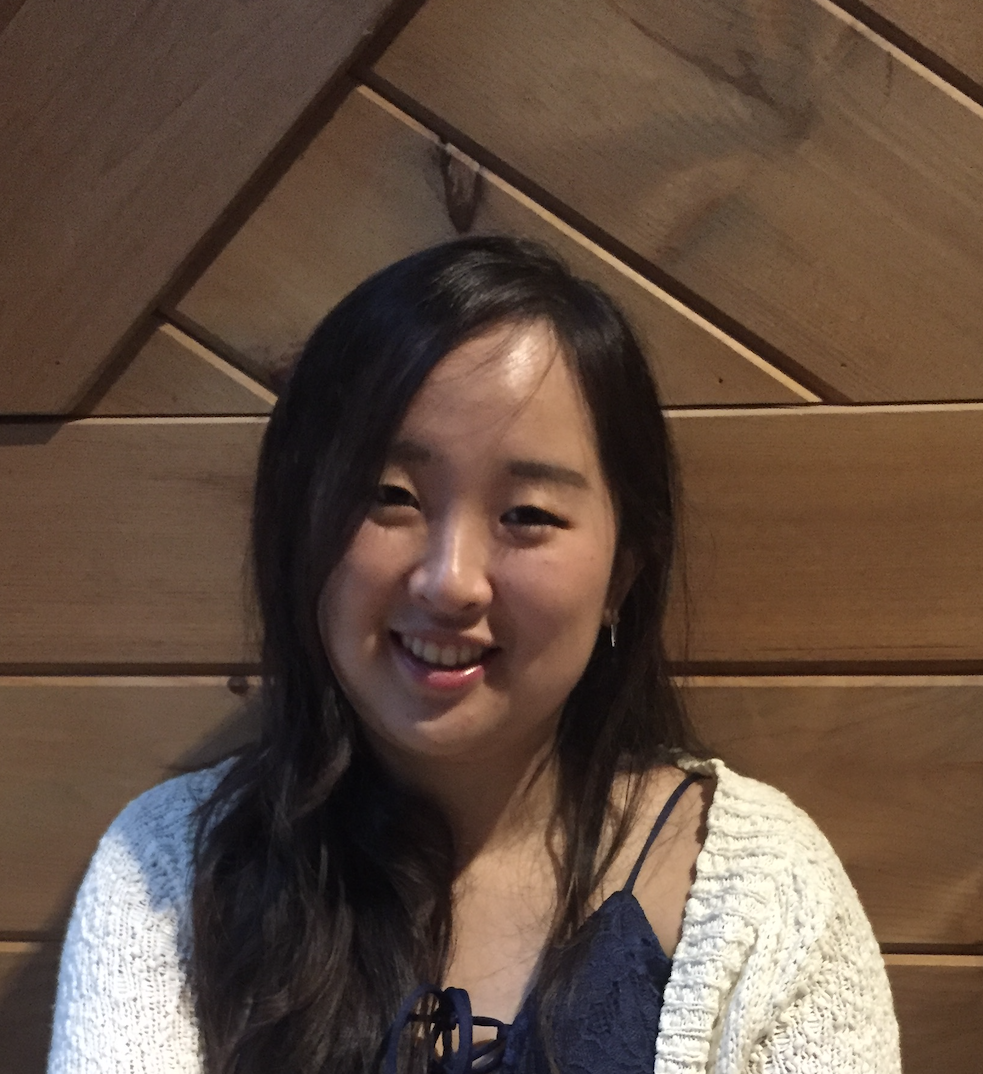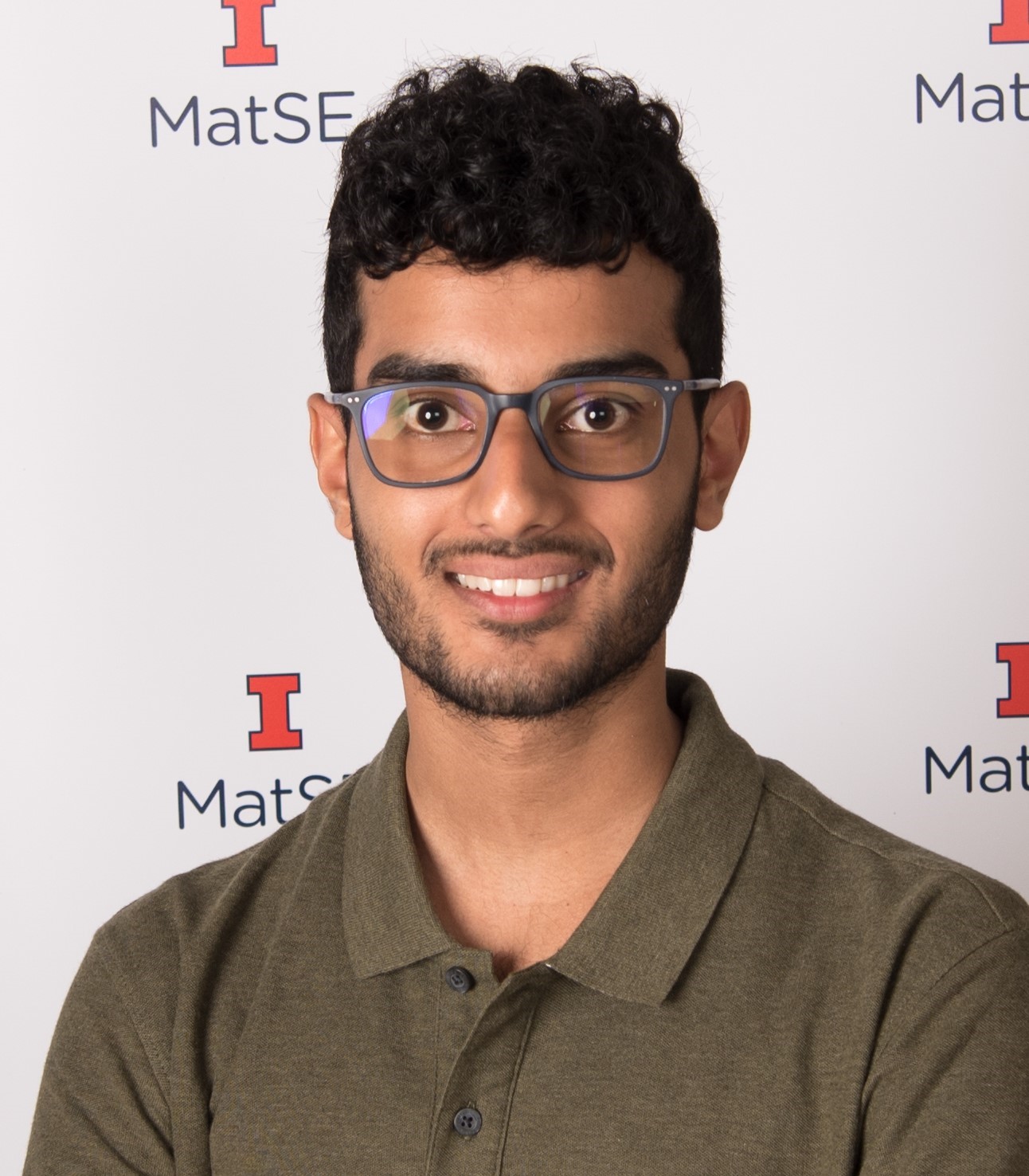Two graduate students will present their research at the upcoming Beckman Institute Graduate Student Seminar: Winnie Chung, psychology; and Abhiroop Mishra, materials science and engineering.
The hybrid seminar will take place at noon on Wednesday, Oct. 5 in 1005 Beckman and on Zoom. Lunch will be provided to in-person attendees.
Register in advance to attend.
Read carefully, this is important: How value-driven strategies impact sentence processing and memory
Winnie Chung, psychology
 Winnie Chung
Winnie ChungUnlike people, not all information is created equal. For example, remembering the treatment plan your doctor describes is more important than what your friend had for lunch that same day. Like this, some information is more valuable to people than others depending on the context or nature of the information. However, little is understood on how people adapt their comprehension strategies to process and retain such information. In this talk, I will ask the following questions: What kind of strategies do people engage in when trying to read and retain important information? How might those strategies impact their downstream memory? By examining electrophysiological and behavioral outcomes, I address the valuable question of how language comprehenders adapt to different contexts to maximize their learning of important information, allowing us to investigate how different processing strategies may or may not be adopted in the moment of processing and how increased motivation may predict other processes like semantic access or revision as well as impact memory outcome.
Winnie Chung is a senior Ph.D. student in the Department of Psychology working with Dr. Kara Federmeier. She is interested in the interaction between cognition and language in the context of cognitive development and decline. Her current work employs event-related potentials, or ERPs, in conjunction with behavioral methodology, to examine the downstream consequences of predictive processing on memory in younger and older adults. She received her B.A. in English language and literature and psychology from Seoul National University in 2016.
Overcharging your battery causes deleterious oxygen release: Insights gained by placing tiny electrodes close to operating Li-ion battery cathodes
Abhiroop Mishra, materials science and engineering
 Abhiroop Mishra
Abhiroop MishraPresent Li-ion batteries, or LiBs, cannot fulfill the envisioned specific energy required for advanced applications such as long-range electric vehicles. Cathodes are the primary bottleneck limiting existing LiBs capacity. Next generation nickel-rich oxide cathodes possess significantly higher energy densities and operating voltages. However, a key challenge in these cathodes are the surface degradation processes, such as lattice oxygen loss, that significantly limits the available capacity. Therefore, elucidating these transient surface degradation phenomenon remains an ongoing pursuit with practical implications. In this work, we developed a spatially resolved, in situ scanning electrochemical microscopy method for quantitative investigation of the lattice oxygen release during LiB charging. SECM revealed a unique two-stage oxygen evolution behavior from three commercial LiB cathodes: LiCoO2, LiNi0.33Mn0.33Co0.33O2 and LiNi0.8Mn0.1Co0.1O2 respectively. Beyond the expected oxygen loss above 3.6 V (vs Li/Li+), we captured a previously unreported incipient oxygen release at ~3.1 V during the first charge cycle. This novel method allows oxygen detection with a very high sensitivity and spatiotemporal resolution, thereby providing unprecedented insights into such degradation processes.
Abhiroop Mishra is a Link Foundation Energy Fellow in the Department of Materials Science and Engineering pursuing a Ph.D. under the guidance of Professor Joaquín Rodríguez-López. His doctoral work is aimed at developing spatially resolved electrochemical tools for studying the degradation of Li-ion batteries in real time. Outside of research, he is an ardent Lionel Messi fan and enjoys watching and playing soccer.
Learn more about Beckman's Graduate Student Seminar Series.
Read Q&As with student researchers on Beckman's Student Researcher Spotlight page.